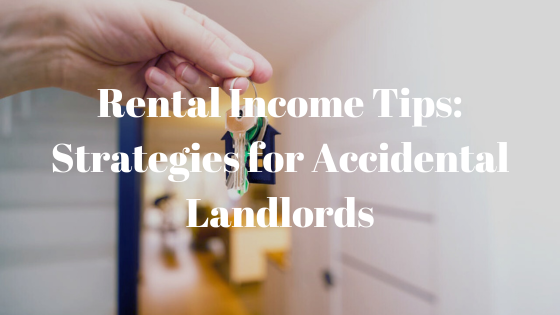Guide to the Eviction Process in North Carolina
DISCLAIMER: The information provided by Dawson in this blog article is for general informational purposes only. All information on the Site is provided in good faith, however we make no representation or warranty of any kind, express or implied, regarding the accuracy, adequacy, validity, reliability, availability or completeness of any information on the Site. If you need legal advice, or want to seek legal assistance you will need to call an attorney. Do NOT call Dawson for legal advice.
The North Carolina eviction process is a relatively straightforward when landlords have to evict a tenant from their rental property. Both the landlord and the tenant are expected to conform to the Chapter 42 of North Carolina General Statutes . Just like the landlord has rights because they own the property, a tenant rented property as well, so they both have rights when it comes to the possession of the dwelling.
NC eviction laws lay out the eviction process you must follow when it comes to evicting a tenant from your property. If a landlord fails to adhere to these North Carolina evictions laws correctly, there may be legal repercussions. If a landlord files for a legal eviction, its filing will cause the proceedings to begin straight away to evict tenants.
According to North Carolina law, landlords can evict renters from their property for a number of reasons. The most common reason for landlords commencing eviction proceedings include:
- Nonpayment of rent or if the tenant fails to pay on time
- Breaching terms of the lease or rental agreement
- Refusing to leave the rental property after the expiry of their lease or rental agreement
- Engaging in a criminal activity such as drug trafficking
If the tenant or person has committed any of these rental or lease violation, a landlord may legally remove them from the leased premises, as allowed in the North Carolina process of eviction and laws. Going through this process in North Carolina district court or small claims court will likely be the correct fit for a landlord's eviction process.
If you are a landlord and unsure of what to do with the eviction process in North Carolina or want to learn more about laws, our team has compiled a step-by-step guide to North Carolina's eviction procedure.
1. Eviction Notice in North Carolina
Serving a written eviction notice is the first step to evict a tenant. The proper eviction notice to serve the tenant must be relevant to the violation committed. For issues related to a tenant who did not make a rental payment, that lead to evictions a landlord must give the renter after a lease violation a proper notice called the “10-day Demand for to Pay.”
Simply put, this written notice allows the tenant a maximum eviction notice period of ten days to either pay past due rent or vacate the North Carolina rental property. If the tenant fails to make rent payment owed within the time frame outlined in the notice, you can go ahead and file an eviction lawsuit against them as a landlord. If a tenant fails to make rent payments or paying rent late, it goes against the rental or lease agreement, and is therefore warranted for an eviction process.
As a landlord, you can also evict a “holdover” tenant by serving them prior written notice that applies for a specific notice period. These are tenants renting a property who stay beyond their term without renewing their written rental agreement. The type of written notice to serve such a tenant is dependent on the term of the lease agreement and their schedule for paying rent. If the rental agreement required tenant to make rent payment:
- Weekly – serve a 2-day notice
- Monthly – serve a 7-day notice
- Yearly – serve a 1-month notice
These eviction notices are also referred to as “unconditional notices to quit.” This means that the tenant has no other option but to leave after receiving the eviction notice, as stated under the laws of the NC eviction process. In other words, there is no option to “cure” the violation or pay past due rent that the notice was issued in response to. If the renter doesn’t move out within the notice period, as a landlord, you can go ahead with the procedure. You don’t need to serve them with another notice.
It’s important to note that after the written rental or lease agreement term expires and prior to filing a complaint, a landlord must not accept any payment. If a landlord rents their property and fails to follow this protocol of notice, the previous term of the tenancy will renew automatically. A landlord cannot evict the tenant when they've paid rent, only the failure to pay due in this case. Either the landlord or the tenant has to break the terms of the rental agreement for it to be cut short.
Aside from outstanding rent payments and a holdover tenant, you can also evict a tenant who violates other lease terms rather than just when they don't cover rent, as per landlord-tenant law. For example, a landlord can evict a tenant who violates the lease agreement by:
- Brings in an unauthorized tenant to rent the property
- Keeps a pet when the lease agreement is against it
- Repeatedly disturbs neighbors, or
- Damages the rental property
Additionally, according to
N.C. Gen. Stat. § 42-11, a tenant can be charged with a misdemeanor for intentional or willful damage to the rental property as this is a criminal activity.
Landlords aren’t required to give renters notice or a chance to remedy the violation of a lease provision. A landlord can file an eviction suit against the tenant immediately after knowledge of the violation.
Lastly, landlords can also evict renters engaging in a criminal activity like drug trafficking while they rent the property. Here, the North Carolina eviction process allows for an expedited eviction process. Also called “Article 7 eviction,” a landlord may notify renters and file an expedited eviction against renters, tenants' households, or tenants' guest or guests engaging in drug trafficking and other criminal activities within the rental.
2. Summary Ejectment
After serving the tenant a proper eviction notice and the tenant has refused to move out of the rental after being evicted, the next step in the North Carolina eviction process is to begin filing a Summary Ejectment to a court like a small claims court. Note that a small claims court only handles lawsuits under $10,000; to start filing lawsuits above this amount, go to a district court instead of a small claims court for your ejectment.
Even with solid grounds to evict a tenant, it’s illegal for a landlord to use “self-help” methods on renters per the North Carolina eviction process. This also applies after a landlord filed a lawsuit in a small claims court.
A self-help eviction process is when a landlord retakes possession of the tenant's personal property without using the right eviction process. Here are a few examples of things that you should never do as a landlord:
- Intimidate or harass your tenant
- Turn off their utilities
- Remove the tenant’s personal possesions prior to their being officially evicted
- Lock the tenant out of the rental
A North Carolina landlord must file the Summary Ejectment in the appropriate court. Typically, in North Carolina, it can either be a
district court or a
small claims court. For a quick settlement of your case, it’s recommended that you choose a small claims court. That being said, damages by tenants sought in a small claims court shouldn’t exceed $10,000. If they do, a landlord should file the Summary Ejectment at the district court instead of a small claims court.
A Summary Ejectment is filed against renters who have failed to do one of these two things: failed to comply with the requirements of the lease agreement, or has failed to surrender control of the leased premises after their lease term has expired.
When completing the form, a landlord is required to state the reason for the eviction as well as the remedies the landlord is seeking from tenants. Generally, an eviction lawsuit seeks two remedies:
- Getting back possession of the rental property, or;
- Getting rental payment owed from the tenant
3. Summons
According to the NC law, once a landlord has filed the eviction case and did pay the eviction filing fee, the court will issue the landlord a Summons. This will then be served to the tenants by the county sheriff's office or an official of the court.
A Summons legally informs the tenants that eviction case action has started. The document tells the tenants when and where the eviction hearing will be.
The North Carolina eviction laws clarify that the sheriff may serve the Summons either in person or by mail within five days of its issuance. The court hearing occurs exactly 14 days after the summons is issued (30 days for a District Court).
The tenants have two options after receiving the Summons. One option is to choose to contest the removal by providing relevant defenses. The other option is simply for the tenants to vacate the premises.
4. The Eviction Hearing
The landlord must be present at the court hearing in order to win the eviction process. The tenant must show up to the court hearing in order to contest the eviction. As a landlord, you should bring as much evidence as possible to strengthen your case. For example, you should remember to bring:
- A copy of the NC lease agreement
- Demand notice you sent your tenant for the rent owed
- Proof of nonpayment of rent
The renter’s presence isn’t necessary at the eviction hearing if:
- The renter is willing to vacate the premises and doesn’t want to oppose the eviction process
- You are merely seeking ownership of the leased premises
At this point, the renter can stop the eviction at the hearing (if it's for failing to make rental payment) by bringing the full amount to cover unpaid rental money and court costs.
At the hearing, the district court judge will give you an opportunity to present your eviction case first on the court date. After you are done presenting your case, court process dictates that your tenant will similarly be offered a chance to state their case. To help win the case, the tenant may bring the following to court:
- Written communications, if any
- A witness to verify what the tenant is claiming
- Receipts for rent to prove payments have been made, and/or
- Photos of the premises (to show poor conditions).
Other common tenant defenses in North Carolina include:
- You used “self-help” eviction process or methods.
- The rental doesn’t adhere to North Carolina housing codes.
- If, for criminal activity, the tenant had no knowledge of the activity or made reasonable attempts to prevent it.
- You discriminated against the renter. That is, you based the eviction on the renter’s national origin, familial status, disability, age, race, sex, or religion.
- The notice was improperly served.
- It's a retaliatory eviction
- The breach of the lease violations isn’t substantial enough to warrant an eviction.
- Your allegations are false.
5. Judgment and the Writ of Possession
If the judgment on the eviction case is in your favor, the judge will award you a “Judgement of Possession.” The “Judgement of Possession” gives possession of the property back to you. The tenant will then have ten days to file an appeal to the eviction case. This will extend your North Carolina eviction timeline. If the tenant appeals when their landlord wins a case, they may accrue appeal costs. Specifically, the court may order them to make payments of the bond as court costs.
For whatever reason, is the renter is unable to make the payments on the bond, you can have tenant appeals quashed and gain a default judgment. If the renter still loses the appeal after paying their court costs for the bond, the only remaining option would be to leave the premises immediately. If they do not, a Writ of Possession will be needed to take further action.
At this point, as a landlord, you can file a Writ of Possession. A Writ of Possession in North Carolina gives the county sheriff the authority to remove the tenant out of your rental. After it is issued by the court, the sheriff would be required to carry out the eviction seven days after the Writ of Possession is issued.
The tenant will have ten days after the issuing of the Writ of Possession to remove all personal property from the rental property.
6. Changing of Locks
It’s important to change the locks after the sheriff's office removes the renter from your property. The changing of locks must be done by a locksmith after you evict a tenant. The sheriff must also be present. The fees charged by the locksmith are your responsibility.
7. Handling a tenant's personal property
You may find that the tenant decides to leave behind some of their personal property in the rental property. According to the North Carolina landlord-tenant law, landlords must notify them of their belongings before disposing of them. If the tenant doesn’t respond, you can dispose of the personal items after the time-frame on the notice expires. ( NCGS § 42-25.9 ) and NCGS § 42-36.2)
For more information about landlord-tenant laws in North Carolina,
click here.
This guide is of a general nature and is meant for informational purposes only. If you need additional help evicting tenants, getting a court order or understanding the landlord-tenant laws in general, seek professional help from a property management company.
Don’t hesitate to reach out to Dawson Property Management for your management needs in Charlotte, NC and surrounding cities.











